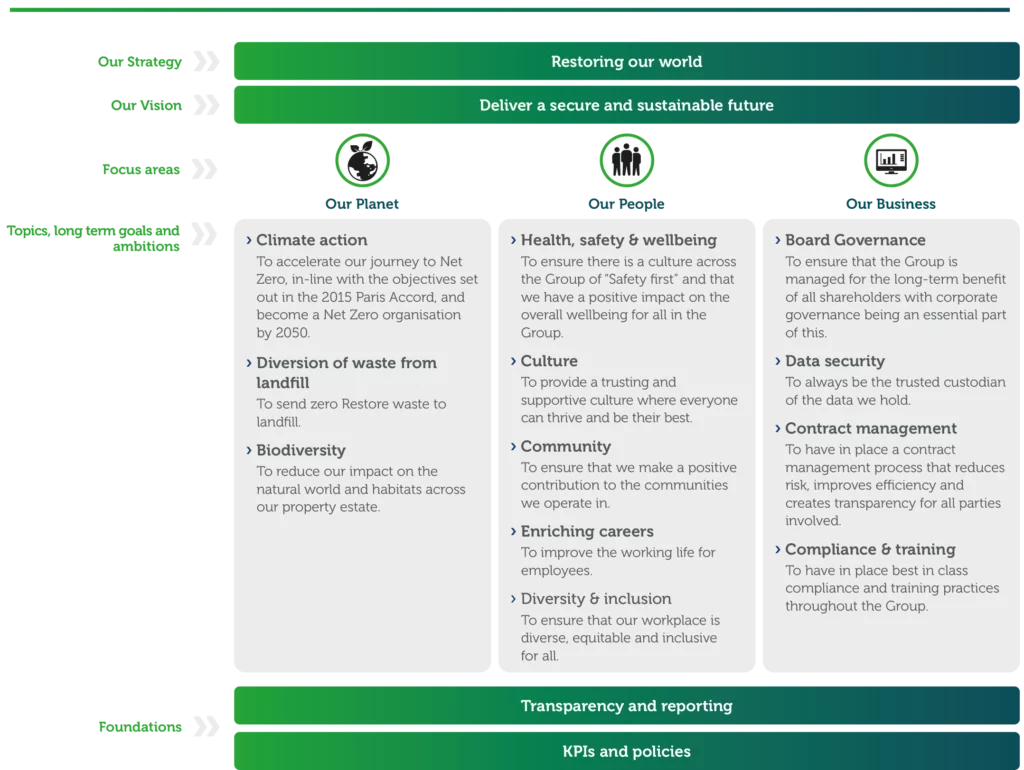
Our ESG strategy
Restore’s vision is to deliver a secure and sustainable future for everyone.
Our goal of Restoring Our World rests on three pillars: our planet, our people, and our business. They are both the focus of our efforts and the key to our success in delivering on our promise.
Restore has made progress against our ‘Restoring Our World’ Strategy and our goal to become a Net Zero organisation by 2035.
That path is shown below.

Our vision is to lead our customers, suppliers and competitors towards a secure and sustainable future. To realise this vision, Restore is working within three primary focus areas: Our Planet, Our People, and Our Business.In 2022 we achieved our 3rd year certification with Planet Mark and have been rated positively by ESG analysts including MSCI, who rated Restore as AA in January 2023.Based on what we learnt in 2022, and to further strengthen our governance, we established an additional Board-level ESG Committee in January 2023. This is chaired by Lisa Fretwell Chair of ESG Committee as an Independent Non Executive Director, and attended by other Non-Executive and Executive Directors.
Our achievements include:
- 2 sites have complete solar panel installations
- All light fittings are on track to be converted to energy-efficient lighting
- 90%+ of our sites are now using renewable energy
- 15 electric cars and 13 hybrid plug-in vehicles
- As part of our vision to safely lead businesses to a secure and sustainable future, we work with customers to create a carbon reduction plan service through transportation.
- Brownfield sites – none of our sites require additional soil consumption or tree felling
- Air Ambulance UK is our Charity of the year for 2024 and 2025
- 1000s of boxes donated to local food banks
- £5,000 raised by the Swadlincote team to support a Ichthyosis diagnosis in a staff member’s new-born
Sustainability energiser session delivered with Planet Mark to colleagues - Supported children and kept adults healthy by sponsoring colleagues to develop playground areas and local football clubs
As part of our vision to safely lead businesses to a secure and sustainable future, we work with customers to create a carbon reduction plan service through transportation.




